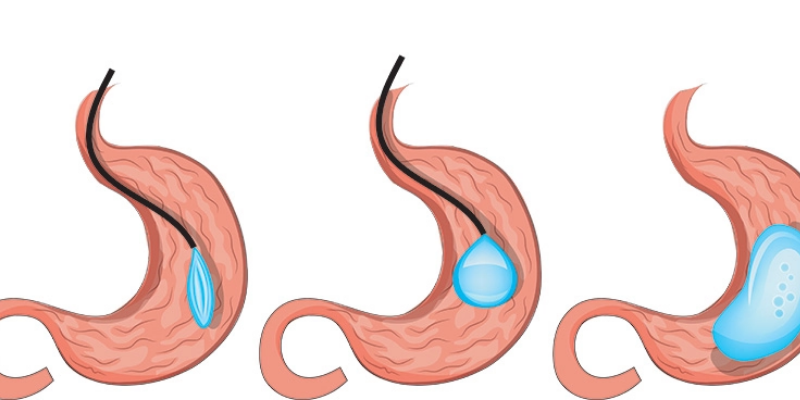Stomach Surgery for Weight Loss
Weight-loss surgery is referred to as gastric surgery or metabolic surgery in various contexts. When describing how these procedures of stomach surgery for weight loss influence the weight and health of patients’ metabolisms. These terms often used in conjunction (breakdown of food into energy). These treatments, in addition to treating obesity, are very beneficial in the treatment of diabetics, hypertension, sleep difficulties, and high blood pressure, among a variety of other ailments. These treatments may also aid in the prevention of future health problems. Patients with obesity who choose to get treatment may anticipate a better quality of life as well as a longer life expectancy as a consequence of the benefits of stomach surgery for weight loss.
Diet and gastrointestinal stomach surgery for weight loss have refined over many decades and are among the most carefully investigated treatments available in modern medicine. Small incisions and minimally invasive surgical methods used in the administration of the treatments (laparoscopic and robotic surgery). Patients will have a much better experience as a result of these advancements, with less pain, fewer difficulties, shorter hospital stays, and speedier recovery durations. There are less complications with these surgeries compared with more traditional treatments such as liver resection, hysterectomy, and complete hip replacement, which are all quite safe.
In order to treat obesity and other illnesses, these treatments designed to change the stomach and intestines in a controlled environment. Stomach surgery for weight loss may cause the stomach to shrink and a portion of the intestine to be bypassed as a result of the procedure. This results in a decrease in food intake as well as a change in the way the body uses food for energy. Resulting in less hunger and greater fullness. These procedures assist the body in achieving and maintaining a healthy weight.
Stomach Surgery for Weight Loss Sleeve Gastrectomy
The laparoscopic sleeve gastrectomy, sometimes known as the sleeve. It is a procedure that includes removing around 80 percent of the stomach using laparoscopic surgery. The stomach that has left is roughly the size and shape of a banana, and it has not distended. The Methodology is a set of procedures that used to do research. It is free of the organs that surround it, as stated in point one.
Two surgical staplers remove 80 percent of the stomach, resulting in a significantly decreased size of the digestive tract.
What is the procedure?
Because the stomach has been altered, it can hold less food and fluids, enabling you to consume less and burn fewer calories. Through the removal of a portion of the stomach that produces a large amount of “hunger hormone,” the surgery has an effect on the metabolism. While simultaneously managing blood sugar levels, it helps the body reach and maintain a healthy weight by decreasing hunger and increasing feelings of fullness. Because of the fundamental nature of the treatment, it is very safe, since it eliminates the hazards connected with small intestine surgery, which would otherwise be necessary.
Advantages
- Surgery is technically simple and takes less time than other procedures.
- It is feasible to do the procedure in select individuals who have medical conditions that are considered high-risk.
- This may utilize as a first step in the treatment of excessive obesity in certain people.
- It may be used as a temporary solution in the interim between gastric bypass and SADI-S procedures.
- Weight loss that is both successful and beneficial in the treatment of obesity-related ailments.
Disadvantages
- There is no way to undo the procedure.
- Reflux and heartburn may become more severe or appear for the first time in a person’s life.
- Has a less detrimental impact on the metabolism than bypass surgery.
Roux-en-Y Gastric Bypass Stomach Surgery for Weight Loss (RYGB)
The Roux-en-Y Gastric Bypass, sometimes known as the gastric bypass. This has performed for more than 50 years. With the laparoscopic approach has refined in 1993 and becoming widely available for stomach surgery for weight loss. It one of the most often performed operations for the treatment of obesity and obesity-related illnesses, and it has a high rate of success. The name derived from a French term that literally translates as in the form of a Y.
The Methodology is a set of procedures that used to do research.
- The stomach divided into two parts: a small top component (pouch) around the size of an egg and a bigger bottom section about the size of a football (stomach). The stomach’s larger section bypassed, and food no longer stored or digested as a result of this.
- The small intestine also divided and linked to the new stomach pouch. So as to allow food to pass through. It takes 3-4 feet of downstream movement to attach the small intestine to the bypassed or expanded stomach, creating a letter Y-shaped connection between them.
Eventually, the food combined with stomach acids and digesting enzymes from the bypassed stomach and early portion of the small intestine that were present before the surgery.
What is the procedure?
There are many methods in which the gastric bypass treatment operates in stomach surgery for weight loss. The newly formed stomach pouch, like many bariatric surgeries, is smaller and can hold less food. Leading in a reduction in the amount of calories that ingested. Furthermore, since the meal does not come into contact with the first part of the small intestine. The amount of nutrients absorbed decreased. For the most part, modifying the route that food takes through the digestive system has a substantial influence on hunger, fullness, and the body’s capacity to acquire and maintain a healthy weight. Even before any weight loss achieved, the effect on hormones and metabolic health often results in an improvement in the symptoms of adult-onset diabetes.
Patients who suffer from reflux (heartburn) also benefit from the operation. And their symptoms typically alleviated almost immediately. Patients must refrain from using tobacco products. As well as from using non-steroidal anti-inflammatory drugs (NSAIDs) such as ibuprofen and naproxen. In addition to making healthy food choices.
Advantages
- Weight loss that is consistent and long-lasting.
- It, effective in the treatment of disorders associated with obesity.
- An improved, standardized method of doing something;
Disadvantages
- It is more difficult to do technically than a sleeve gastrectomy or a gastric band.
- More vitamin and mineral deficiencies as a result of gastric banding or sleeve gastrectomy than with other procedures.
- A obstruction in the small intestine with subsequent repercussions is a potential.
- Ulcers are a risk, especially if you use nonsteroidal anti-inflammatory drugs or smoke.
- It has the potential to cause dumping syndrome. Which is a feeling of being sick after consuming or drinking anything sweet.
What are Some Types of Stomach Surgery for Weight Loss?
Stomach surgery for weight loss is typically reserved for people who are severely obese – those with a body mass index (BMI) of 40 or higher. Depending on the individual’s weight and obesity-related health conditions, different types of stomach surgery may be recommended. Some common types of stomach surgery for weight loss are Roux-en-Y gastric bypass surgery, laparoscopic gastric sleeve resection, laparoscopic adjustable gastric banding, and biliopancreatic diversion with duodenal switch. Each type of weight loss surgery has its own specific purpose, and there can be a range of risks and benefits associated with them.

When following any kind of stomach surgery for weight loss procedure, you will need to make changes in both your diet and lifestyle habits in order to maintain the results of the surgery. Regular exercise and healthy eating habits should be integrated into everyday life in order for the weight loss results from the surgery to last long-term. It is important to consult with a doctor or healthcare provider to determine which type is best suited for your situation. After receiving the appropriate care, you can begin your journey toward achieving your desired weight loss goals.



